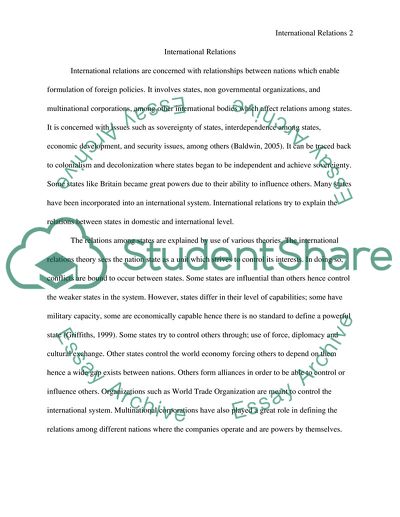Cite this document
(“World politics - essay Question is , - How do Realists and”, n.d.)
World politics - essay Question is , - How do Realists and. Retrieved from https://studentshare.org/history/1579441-world-politics-essay-question-is-how-do-realists-and-structuralists-conceptualize-power-in-international-relations-explain-in-reference-to-the-following-theorists-morgenthau-waltz-and-wallerstein
World politics - essay Question is , - How do Realists and. Retrieved from https://studentshare.org/history/1579441-world-politics-essay-question-is-how-do-realists-and-structuralists-conceptualize-power-in-international-relations-explain-in-reference-to-the-following-theorists-morgenthau-waltz-and-wallerstein
(World Politics - Essay Question Is , - How Do Realists and)
World Politics - Essay Question Is , - How Do Realists and. https://studentshare.org/history/1579441-world-politics-essay-question-is-how-do-realists-and-structuralists-conceptualize-power-in-international-relations-explain-in-reference-to-the-following-theorists-morgenthau-waltz-and-wallerstein.
World Politics - Essay Question Is , - How Do Realists and. https://studentshare.org/history/1579441-world-politics-essay-question-is-how-do-realists-and-structuralists-conceptualize-power-in-international-relations-explain-in-reference-to-the-following-theorists-morgenthau-waltz-and-wallerstein.
“World Politics - Essay Question Is , - How Do Realists and”, n.d. https://studentshare.org/history/1579441-world-politics-essay-question-is-how-do-realists-and-structuralists-conceptualize-power-in-international-relations-explain-in-reference-to-the-following-theorists-morgenthau-waltz-and-wallerstein.


